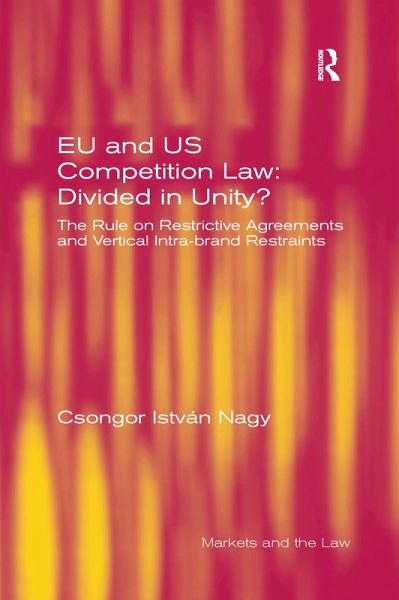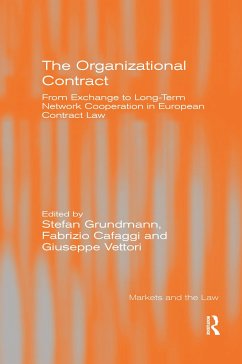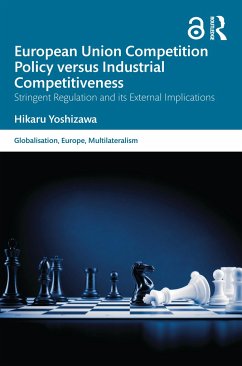
EU and US Competition Law: Divided in Unity?
The Rule on Restrictive Agreements and Vertical Intra-brand Restraints
Versandkostenfrei!
Versandfertig in 6-10 Tagen
45,99 €
inkl. MwSt.
Weitere Ausgaben:

PAYBACK Punkte
23 °P sammeln!
This book examines the structure of the rule on restrictive agreements in the context of vertical intra-brand price and territorial restraints, analysing, comparing and evaluating their treatment in US antitrust and EU competition law. It examines the concept of 'agreement' as the threshold question of the rule on restrictive agreements, the structure and focus of antitrust/competition law analysis, the treatment of vertical intra-brand price and territorial restrictions and their place in the test of antitrust/competition law. The treatment of vertical intra-brand restraints is one of the mos...
This book examines the structure of the rule on restrictive agreements in the context of vertical intra-brand price and territorial restraints, analysing, comparing and evaluating their treatment in US antitrust and EU competition law. It examines the concept of 'agreement' as the threshold question of the rule on restrictive agreements, the structure and focus of antitrust/competition law analysis, the treatment of vertical intra-brand price and territorial restrictions and their place in the test of antitrust/competition law. The treatment of vertical intra-brand restraints is one of the most controversial issues of contemporary competition law and policy, and there are substantial differences between the world's two leading regimes in this regard. In the US, resale price fixing merits an effects-analysis, while in the EU it is prohibited almost outright. Likewise, territorial protection is treated laxly in the US, while in the EU absolute territorial protection - due to the single market imperative - is strictly prohibited. Using a novel approach of legal analysis, this book will be of interest to academics and scholars of business and commercial law, international and comparative law.













